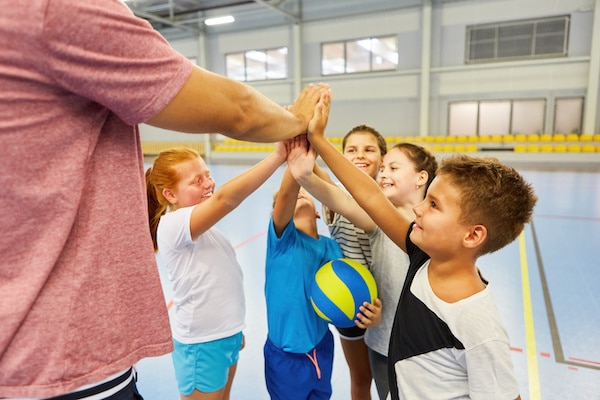
The Power of Play: Benefits of Physical Activity for Children and Young Adults with Autism
Physical activity is a universal need for all individuals, regardless of age or ability. For children and young adults with autism spectrum disorder (ASD), engaging in regular physical activities can bring about a plethora of benefits that extend beyond physical health. In this blog post, we will explore the many advantages of physical activity for individuals with autism, highlighting how it can enhance their overall well-being and quality of life.
1. Improved Motor Skills
Physical activities such as running, jumping, and playing sports can significantly improve motor skills in children and young adults with autism. These activities help in developing coordination, balance, and gross motor skills, which are crucial for everyday tasks and activities.
2. Sensory Integration
Many individuals with autism experience sensory sensitivities or challenges. Physical activities can serve as a means of sensory integration. Engaging in activities like swinging, bouncing on a trampoline, or playing with textured materials can help individuals with autism regulate sensory input, leading to increased comfort and reduced anxiety.
3. Social Interaction
Physical activities often involve interaction with peers, siblings, or caregivers. This social interaction is invaluable for individuals with autism, as it provides opportunities to practice social skills, such as taking turns, sharing, and communicating effectively. Team sports, group classes, and playdates can facilitate meaningful social connections.
4. Enhanced Communication
Engaging in physical activities can also improve communication skills in children and young adults with autism. Through joint activities, individuals may learn to express themselves, make requests, and engage in non-verbal communication. These skills can then be transferred to various aspects of their lives.
5. Stress Reduction
Physical activity is an excellent stress reliever. It helps reduce anxiety, frustration, and meltdowns in individuals with autism. Exercise triggers the release of endorphins, which are natural mood elevators, leading to a more relaxed and contented state of mind.
6. Better Sleep
Regular physical activity can contribute to improved sleep patterns. Many individuals with autism struggle with sleep issues. Physical activity can help regulate sleep by promoting better circadian rhythms and ensuring that excess energy is expended during the day.
7. Increased Self-Esteem
Success in physical activities, whether it’s mastering a new skill or achieving a fitness goal, can boost self-esteem and self-confidence in individuals with autism. Feeling competent in a physical activity can translate into increased self-worth.
8. Structured Routine
Routine and predictability are essential for many individuals with autism. Engaging in regular physical activities can help establish structured routines, providing a sense of stability and comfort.
9. Coping Mechanism
Physical activity can serve as a positive coping mechanism for individuals with autism. Instead of resorting to negative behaviors in response to stress or sensory overload, they can turn to physical activities as a healthy outlet.
Conclusion
Physical activity is a powerful tool for enhancing the lives of children and young adults with autism. It offers numerous physical, sensory, social, and emotional benefits. It’s important to note that the type and intensity of physical activities should be tailored to each individual’s unique needs and preferences. By incorporating regular physical activities into their lives, individuals with autism can experience improved motor skills, sensory integration, social interaction, communication, and overall well-being. So, let’s encourage and support physical activity as an integral part of the lives of those with autism, allowing them to thrive and reach their full potential.
Harsha Autism Centers provide ongoing care for children, adolescents, and young adults (ages 2-22) with autism to improve the quality of their lives. If you would like learn more about how Harsha Autism Centers can help please contact us at info@harshaautism.com or call (812) 233-8833.



